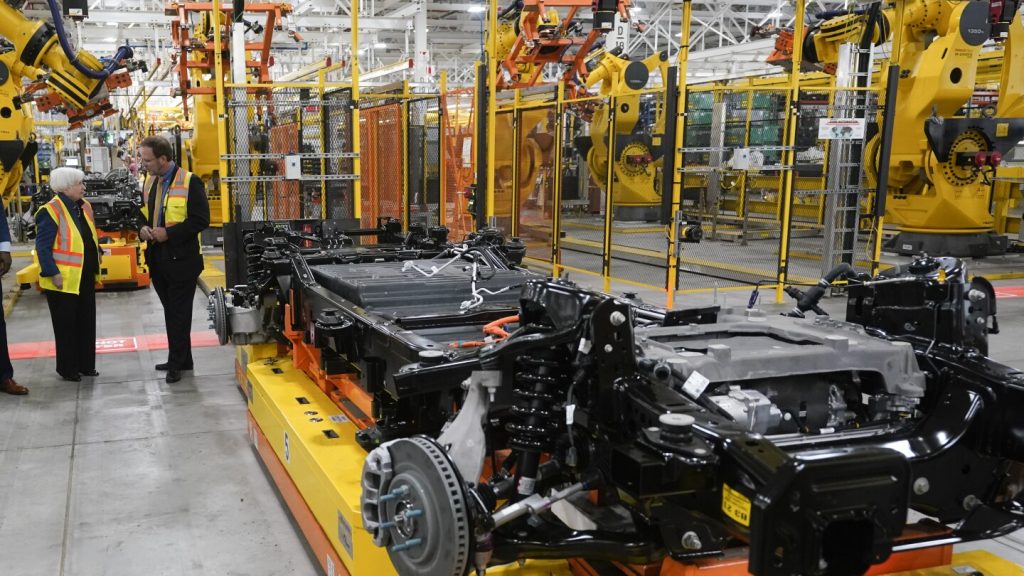Ford’s decision to cut the number of hourly workers at its factory that produces the Ford F-150 Lightning comes as sales of electric vehicles are not meeting expectations. Despite the growth of EV sales in the U.S., many consumers are opting for hybrid vehicles instead of fully electric models. Ford had previously reduced production of the F-150 Lightning electric pickup due to slower-than-expected sales growth. The company sold just over 24,000 Lightnings last year, up 55% from the previous year, but dealers are reporting slower sales and increasing inventories of the electric truck, which starts at just under $50,000.
According to Ford spokeswoman Jessica Enoch, the workforce at the Rouge Electric Vehicle Center in Dearborn, Michigan will be reduced next week. Of the 2,100 workers at the facility, one-third will remain, while 700 will be transferred to the Michigan Assembly Plant in Wayne to work on the Bronco and Ranger models. The remaining 700 workers will have the option to take a retirement package offered during last year’s contract negotiations with the United Auto Workers, or they can choose a reassignment in southeast Michigan. Ford is also adding a third crew at the Michigan Assembly Plant as part of the restructuring.
The news of the job cuts comes amid a challenging period for the electric vehicle industry, as sales are not meeting expectations and consumers are showing a preference for hybrid vehicles over fully electric models. Despite efforts by automakers to promote electric vehicles and invest in new technology, the pace of EV adoption has been slower than anticipated. Ford’s decision to reduce the workforce at its electric vehicle production facility reflects the challenges facing the industry as it navigates the transition to electric mobility.
Shares of Ford Motor Co. were essentially flat before the opening bell, indicating that investors may be cautious about the company’s restructuring efforts and the challenges facing the electric vehicle market. The decision to cut hourly workers at the Rouge Electric Vehicle Center is a significant move for Ford, as it signals a shift in production priorities and a recognition of the current market dynamics. While Ford remains committed to its electric vehicle strategy, the company is taking steps to align its production capacity with market demand and consumer preferences.
The future of the electric vehicle market remains uncertain, as automakers navigate the challenges of transitioning to electric mobility while also meeting consumer demand for traditional vehicles. Ford’s decision to reduce the workforce at its electric vehicle production facility is a reflection of the broader challenges facing the industry, and highlights the need for companies to adapt to changing market conditions. As the industry continues to evolve, automakers will need to make strategic decisions to ensure their long-term success in the rapidly changing automotive landscape.


